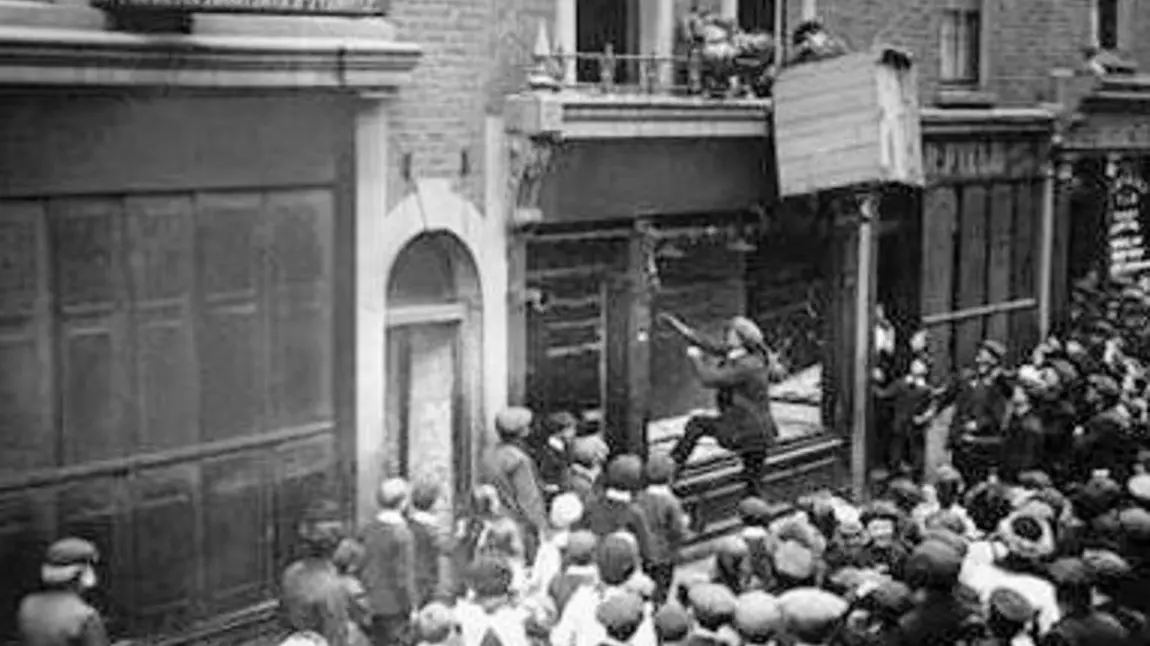Little Germany First World War project launches exhibition

Stuart Hillary, grandchild of a Stratford internee, said: “My grandfather was told to attend the police station and then he disappeared and he was taken up to London. My grandmother didn’t know where he’d gone to and had no communication from him.”
To commemorate the centenary of the First World War this year, Eastside Community Heritage are running, Little Germany, Stratford and East London 1914, a Heritage Lottery Fund (HLF) supported project exploring the experiences of Germans in East London during the conflict.
Since being awarded a £9,900 HLF grant last August, Eastside Community Heritage and project volunteers have conducted extensive archival research and oral histories with descendants of Germans and those with strong family ties to the area, as well as running school workshops, talks and reminiscence sessions.
Sue Bowers, Head of Heritage Lottery Fund, London, said: “The impact of the First World War was far reaching, touching and shaping every corner of the UK and beyond. The conflict didn’t affect everyone in the same way and this fascinating project has uncovered some fascinating and thought-provoking stories about what life was like for an often forgotten aspect – the German community in wartime London.”
Samantha Roberts, descendant of East London's German community, said: “Grandmother told the story that the Germans were so hated in the East End that she saw a dog a being kicked to death by school children – and that was the little snippets that you occasionally got but you didn’t get anything else.”
The German community in Britain numbered up to 50,000 before the 1914-1918 war; many having come to London to avoid conscription in Germany or for the greater political freedoms available to them here. Most came to find work as hairdressers, sugar-refiners, bakers, and waiters, before settling down with British wives in the East End.
The outbreak of war signalled an end for this previously integrated immigrant community. The combination of nationwide spy fever (perpetuated by the mass media), with the loss of the Lusitania in May 1915 and the zeppelin menace hovering over London, caused Londoners to take to the streets against the German community in the anti-German riots. This in turn prompted the government to take the solution of registering, and then interning all ‘enemy aliens’ of military age. A state of 'Germanophobia' gripped the capital and the country as a whole.
Stratford held the worst reputation amongst Germans; described by one internee as a "veritable hell". Memory of the camp has not lingered in the local consciousness, despite much contact between the camp and locals at the time. Only by tracing down descendants of prisoners from the Stratford camp, as well as descendants of those from the persecuted German communities in Plaistow, Canning Town, East Ham and West Ham, Walthamstow and Whitechapel can this story of East London finally be revealed.
Stories unearthed from the project’s research provide a wide insight into the issues surround the topic; a fearful Russian businessman defending his reputation from scandalous claims of German heritage; a ruthless camp commandant striking a TB-ridden prisoner for not answering "sir"; abuse from local women and children to incoming German POWs; a German grandmother defending her children from the violent anti-German riots with a flat iron; and two cousins torn apart by the sheer circumstance of their birth.
Notes to editors
About Eastside Community Heritage
Eastside Community Heritage was established in 1993 as part of the Stratford City Challenge community history project. In 1997 Eastside became an independent charity. Over the years Eastside has worked on numerous projects documenting the lives of ordinary people from, and who live in, East London.
For more information and exhibition dates visit the Eastside Community Heritage website.
Further information
Judith Garfield on tel: 020 8553 3116 or 07540 703 506, or email: office@ech.org.uk.